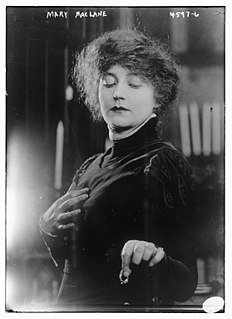A Quote by Lewis H. Lapham
Now that Mr. Carter has made a book of his diary, an adoring memoir entitled Keeping Faith, the notes read like a collection of letters sent from scout camp.
Related Quotes
Mr. Crossley suddenly wondered why he was why he was worrying about the note. It was only a joke, after all. He cleared his throat. Everyone looked up hopefully. 'Somebody,' said Mr. Crossley, 'seems to have sent me a Halloween message.' And he read out the note: 'SOMEONE IN THIS CLASS IS A WITCH.' 6B thought this was splendid news. Hands shot up all over the room like a bed of beansprouts. 'It's me, Mr. Crossley!' 'Mr. Crossley, I'm the witch!' 'Can I be the witch, Mr. Crossley?' 'Me, Mr. Crossley, me, me, me!
Another thing I like to say to my students is this: "How many Corinthians read Paul's letters?" The answer is none. They couldn't have cared less! There aren't even any Corinthians left, but Paul's letters persist. Paul was not a professional writer. He was called to something, and he sent his letters. That's a good way to look at it. That you might be making something that nobody cares about, but you have to do it. It's not that people should care, but that you should care.
Don't tell girls they can be anything they want when they grow up. Because it would have never occurred to them that they couldn't. It's like saying, 'Hey, when you get in the shower, I'm not gonna read your diary.' 'Wait--are you gonna read my diary?' 'No! I said I'm not gonna read your diary. Go take a shower!'
A book is not necessarily made of paper. A book is not necessarily made to be read on a Kindle. A book is a collection of text, organized in one of a variety of ways. You could say that words printed on paper and bound between cloth covers will someday be obsolete. But if and when that day comes, there will still be a thing called books.
In a badly designed book, the letters mill and stand like starving horses in a field. In a book designed by rote, they sit like stale bread and mutton on the page. In a well-made book, where designer, compositor and printer have all done their jobs, no matter how many thousands of lines and pages, the letters are alive. They dance in their seats. Sometimes they rise and dance in the margins and aisles.
Wildlife was the only thing we've written together with Paul Dano. It's based on a book by this author Richard Ford, who just published a memoir about his family that's really wonderful. Paul fell in love with his book, and we optioned it ourselves, and he took a first pass at writing it. He asked me for notes, and then our note session devolved into an argument really quickly.
When the Congress first met, Mr. Cushing made a motion that it should be opened with prayer . . . Mr. Samuel Adams arose and said he was no bigot, and could hear a prayer from a gentleman of piety and virtue, who was at the same time a friend to his country. He . . . had heard that Mr. Duche . . . deserved that character and therefore he moved that Mr. Duche . . . might be desired to read prayers to the Congress . . . . After (he read several prayers), Mr. Duche, unexpected to everybody, struck out into an extemporary prayer, which filled the bosom of every man present.




































